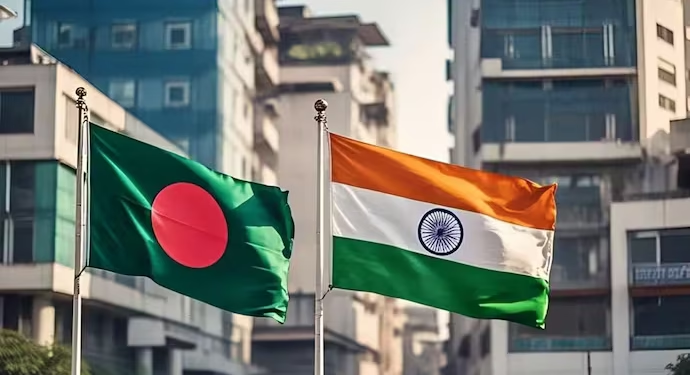New Delhi, April 9, 2025 — In a significant diplomatic development, India has suspended trans-shipment services to Bangladesh following controversial remarks made by Nobel Laureate Muhammad Yunus, who referred to India’s northeastern region as “landlocked.”
The Indian government viewed Yunus’s comments as a misrepresentation of geographic and political realities, particularly in the context of longstanding trade and connectivity arrangements between the two countries. Officials described the statement as “factually incorrect and diplomatically insensitive,” noting that the northeastern states are connected to the rest of India through the Siliguri Corridor and benefit from multiple connectivity projects with neighboring countries.
Yunus made the remarks during a recent economic forum in Dhaka, where he highlighted the importance of Bangladesh as a transit hub for the northeastern region. While he emphasized the potential economic benefits for Bangladesh, his characterization of the Indian Northeast as “landlocked” raised eyebrows in New Delhi.
“Such statements not only ignore the strategic infrastructure investments made in the region but also undermine the spirit of mutual cooperation between India and Bangladesh,” an Indian official said on condition of anonymity. Yunus
In response, India has temporarily halted its facilitation of trans-shipment cargo bound for the Northeast through Bangladeshi ports, including Chittagong and Mongla. These routes had been opened as part of a broader effort to improve regional connectivity under the Bangladesh-Bhutan-India-Nepal (BBIN) initiative.
The suspension is expected to affect trade and logistics operations in both countries, particularly industries relying on faster and cost-effective movement of goods through Bangladeshi territory.
Bangladeshi officials have yet to issue a formal response, but sources indicate that diplomatic backchannels have been activated to resolve the matter.
Analysts say this incident underscores the delicate nature of regional cooperation in South Asia, where economic collaboration is often intertwined with political sensitivities.
“India and Bangladesh have made significant strides in connectivity and trade in recent years,” said Dr. Rajiv Bhatia, a former diplomat and foreign policy expert. “However, public statements—especially by high-profile figures—can have unintended consequences if not carefully framed.”
As of now, it remains unclear how long the suspension will last or what measures both governments will take to de-escalate the situation.
Also Read : Trump Mocks World Leaders Over Tariff Talks, Says Countries Are “Kissing My A**”















 Categories
Categories










